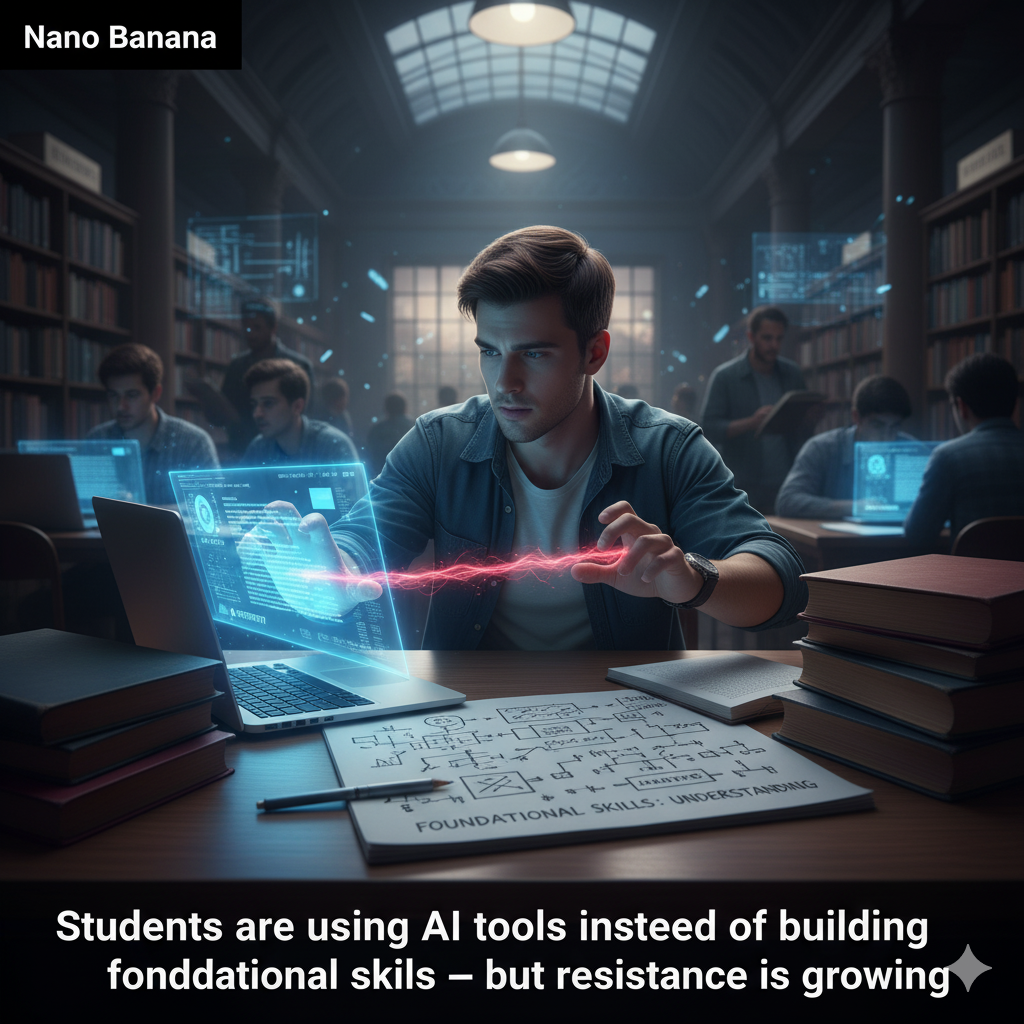
Source
ZDNet
Summary
The rapid uptake of AI in education is fuelling concerns that students are outsourcing critical thinking and failing to build long-term skills. While AI helps with grading, planning, and coding, academics worry about “hollow” assignments that lack depth and originality. Some professors highlight students’ inability to explain code produced with AI, exposing gaps in understanding. In response, a coalition of technology faculty issued an open letter urging universities to resist uncritical adoption, warning of dependence, loss of expertise, and damage to academic freedom. Advocates argue AI should supplement—not replace—foundational skills, with careful vetting and practical use.
Key Points
- AI is heavily used in classrooms, but risks undermining deep learning and original thought.
- Examples show students submitting near-identical AI essays or failing to explain AI-written code.
- Professors call for limits and redesigns to safeguard academic freedom and integrity.
- Concerns include declining quality of computer science education and over-reliance on prompting tools.
- Best practice is to adopt AI deliberately, ensuring it serves genuine educational purposes.
Keywords
URL
Summary generated by ChatGPT 5

